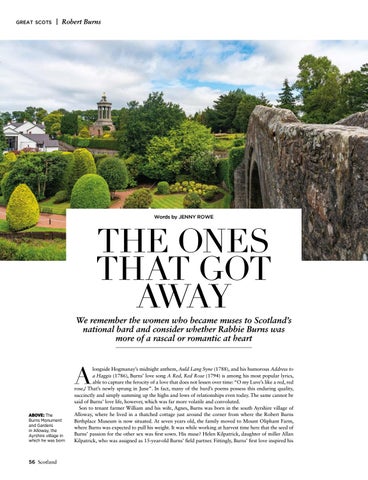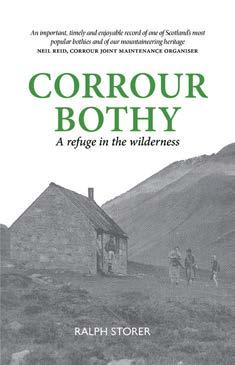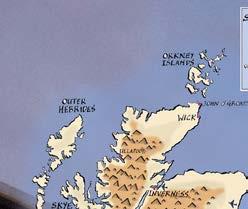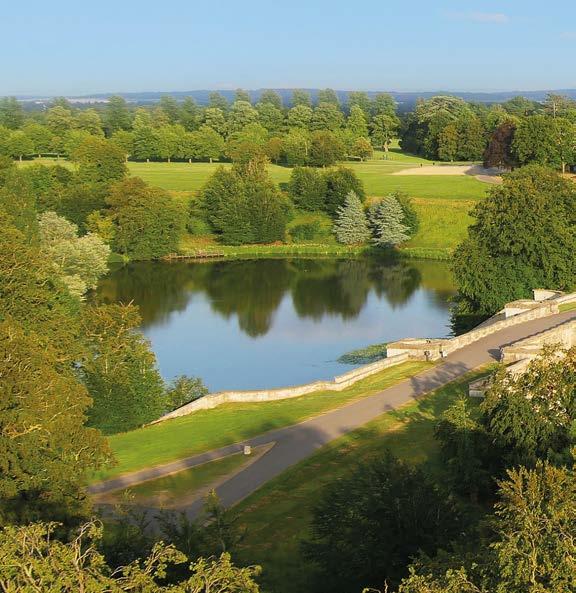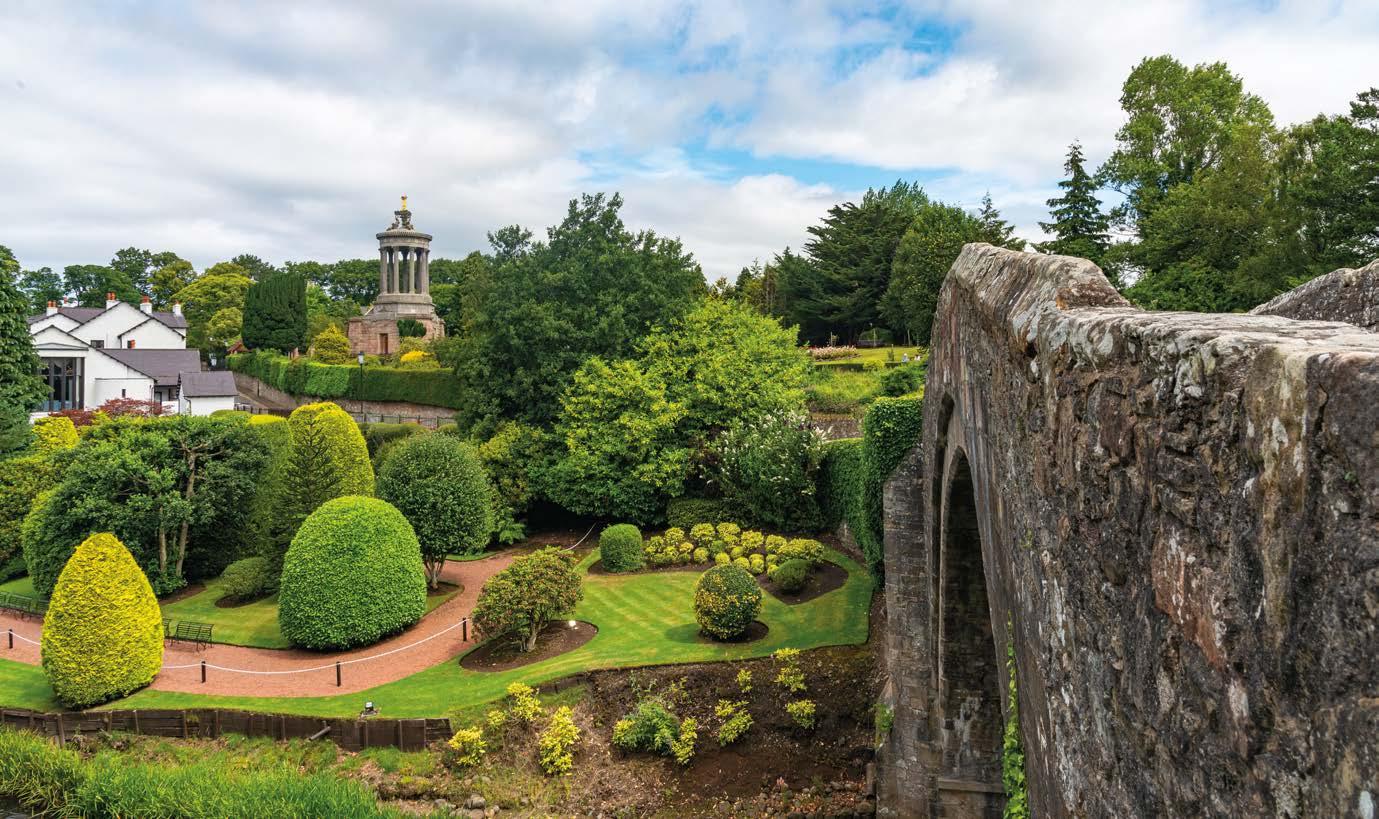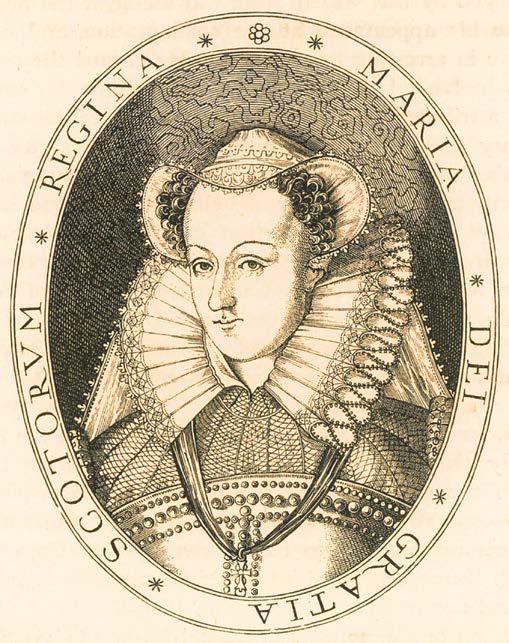great scots
| Robert Burns
Words by JENNY ROWE
THE ONES THAT GOT AWAY
We remember the women who became muses to Scotland’s national bard and consider whether Rabbie Burns was more of a rascal or romantic at heart
A
ABOVE: The Burns Monument and Gardens in Alloway, the Ayrshire village in which he was born
56 Scotland
longside Hogmanay’s midnight anthem, Auld Lang Syne (1788), and his humorous Address to a Haggis (1786), Burns’ love song A Red, Red Rose (1794) is among his most popular lyrics, able to capture the ferocity of a love that does not lessen over time: “O my Luve’s like a red, red rose,/ That’s newly sprung in June”. In fact, many of the bard’s poems possess this enduring quality, succinctly and simply summing up the highs and lows of relationships even today. The same cannot be said of Burns’ love life, however, which was far more volatile and convoluted. Son to tenant farmer William and his wife, Agnes, Burns was born in the south Ayrshire village of Alloway, where he lived in a thatched cottage just around the corner from where the Robert Burns Birthplace Museum is now situated. At seven years old, the family moved to Mount Oliphant Farm, where Burns was expected to pull his weight. It was while working at harvest time here that the seed of Burns’ passion for the other sex was first sown. His muse? Helen Kilpatrick, daughter of miller Allan Kilpatrick, who was assigned as 15-year-old Burns’ field partner. Fittingly, Burns’ first love inspired his
